Why It's Critical To Rewire Your Brain- AK with Life Saver Wellness
In this episode with my very special guest AK Dozanti, we will learn about life saving wellness, and she's gonna talk about things of like rewiring your brain, making those neuro pathways that maybe have been, non-existent kind of putting them back into place. She's gonna talk about breathing and how important that is. And mobility, all these things play such a critical role in your lives that maybe we don't often realize how critical they are.
In this episode with my very special guest AK Dozanti, we will learn about life saving wellness, and she's gonna talk about things of like rewiring your brain, making those neuro pathways that maybe have been, non-existent kind of putting them back into place. She's gonna talk about breathing and how important that is. And mobility, all these things play such a critical role in your lives that maybe we don't often realize how critical they are.
As a First Responder, you are critical in keeping our communities safe. However, the stress and trauma of the job can take a toll on your mental health and family life.
If you're interested in personal coaching, contact Jerry Lund at 435-476-6382. Let's work together to get you where you want to be to ensure a happy and healthy career.
Podcast Website www.enduringthebadgepodcast.com/
Podcast Instagram www.instagram.com/enduringthebadgepodcast/
Podcast Facebook www.facebook.com/EnduringTheBadgePodcast/
Podcast Calendar https://calendly.com/enduringthebadge/enduring-the-badge-podcast
Personal Coaching https://calendly.com/enduringthebadge/15min
Host Instagram www.instagram.com/jerryfireandfuel/
Host Facebook www.facebook.com/jerrydeanlund
Hi everyone. And welcome to this week's episode of Enduring the badge podcast. I'm your host Jerry Dean Lund, and I don't want you to miss an upcoming episode. So please hit that subscribe button. And while your phone's out, please do me a favor and give us a review on iTunes or our apple podcast. It says, Hey, this podcast has a great message and we should send it out to more people.
So please take that 30 seconds to a minute to do that review. And just maybe by doing that, it'll push this up into someone's podcast feed that really needs this message. Hey, everyone. I wanted to take a. And introduce you to fire and fuel coaching. It's a coaching program to help you get unstuck from where you're at and know that you're not the only one that's feeling the way you're feeling, and I'm gonna help you with an areas like health burnouts, work, life balance, and your relationships, and how to manage that the best way possible for you to get.
Best out of your life and reach your truest potential. And we're gonna do that by helping you discover your inner wisdom and your inner motivation to make these changes and make them last. Please check me out on Instagram at Jerry fire and fuel, and you can also check the program out at end during the badge podcast under the coaching section.
So if you wanna make. Please reach out to me and we'll make it happen. Now let's jump into this episode with my very special guest AK. She is from life saving wellness, and she's gonna talk about things of like rewiring your brain, making those neuro pathways that maybe have been, non-existent kind of putting them back into place.

She's gonna talk about breathing and how important that is. And mobility, all these things play such a critical role in your lives that maybe we don't often realize how critical they are. So let's jump into this episode with AK, discuss your journey and I'll let her introduce herself. Yeah. Well, thank you very much for having me on, um, and.
My journey is an interesting one. Um, I will say that, um, I'll just start at the beginning and, and kind of hit the highlights and, and maybe some low points, but, um, I started my law enforcement career at 19 years old. Um, which, you know, I believe most states you have to be 21 to be commissioned and Ohio was one of them.
So I started as an auxiliary doing undercover online investigations did that for a couple of years. Um, went through the academy at 20. I was getting my, uh, bachelor's in. Criminology and sociology and I, I just really kind of fell into it. Um, it all seemed so interesting and I thought, wow, if, if I could be some kind of an investigator, you know, doing what I'm doing as an auxiliary, um, you know, I obviously I have to go through the police academy and, uh, pay my dues on the road and, and do all of that stuff.
And so, um, I did that. I, I graduated from, um, Kitt state and a couple days later, uh, started with the Sheriff's office in uniform. And, uh, did that for several years. The bulk of which was on road patrol on afternoon shift. So high speed, low drag, uh, you know, we were hitting all the in progress calls and all the fun stuff.
Um, and. I did, um, Marine patrol during that time as well. So I, I patrolled the waters and that was fun. Um, and then in 2015, I went from, you know, being officer of the year, uh, in February to complete and total burnout by September. Um, and at that point I pivoted. Became a criminal court victim advocate. I tried to stay in law enforcement, um, as like a special deputy in auxiliary.
And I just couldn't seem to keep the connection and let my mind and body really go back in fully. So, um, while I was an advocate, I went back and got my master's degree in victimology, which essentially is trauma. And, um, Also became a yoga instructor, um, as part of my own, uh, journey to just try to seek out some, some peace and, uh, kind, kind of iron out what I, all the things that I was feeling at the time.
Um, but. Through that training. I actually became a yoga instructor and meditation specialist and all those things. So, um, yeah, and then I left that position in 2020 and took some time because things still had not completely like the dust had not still completely settled. Um, and what, I didn't know, when I entered the job at such a young age was that I had unresolved traumas and.

As many of us do we just think, wow, I'm already messed up. I'll just be a cop. , you know, it can't hurt me now. Right? Yeah. Yeah. And, um, but we don't realize what we're actually doing and then compiling all of that on. So I took some time off and uh, really just lived the mom life for a little while and I thought I I've got to serve, but I just can't get back in uniform and.
It hit me to take all of these parts that seemed very disjointed, put 'em all together and funnel 'em back to first responders in military. Yeah. That, that's pretty awesome. That's an incredible journey that you had and starting at 19, I think that's, that's pretty impressive in, in itself. So yeah, officer of the year and then six months later.
Done. Yep. Why? Um, well, as I mentioned, everything was like high speed, low drag, right? Yeah. And so, um, in hindsight, what was happening? Um, I had moved a couple hours away from my family, so my family of origin was like, not, I couldn't just like pop over to mom and dad's for dinner or anything like that. Um, So I was a little bit isolated.
Um, some of that was my own doing and, um, I really had, I just dove into the work. I was, um, you know, going out 7:00 AM on the boat to 2:00 PM and then hopping in the cruiser at 4:00 PM to midnight and doing it again the next day. And as much as I loved it, I didn't realize that I was, um, Not only physically and mentally burning myself out, but emotionally I was just running from my issues.
And so I was, um, I, what I call being a chain achiever. Like I just you just can't stop to be satisfied. Yeah. You just have to keep looking for the next and looking for the next. And, um, what I then realized was it also was affecting my health. Um, As, as we tend to ignore, you know, the stress for the job come on.
Right. Right. Well, I had, um, I'd have my tonsils out at 26 years old, which is not, um, I also had shingles before I was even 30. Oh yeah. Which is very. also very uncommon. Yeah. Um, be, and it was because of the stress levels because my immune system was crashing because my adrenal, I had adrenal fatigue. Yeah.
Um, my adrenal glands were just shot. And um, so it got to the point where I couldn't ignore it anymore. Things were happening at, at work. My job performance was suffering. Um, and I thought I just. I'm, I'm not doing anybody any good right now, so I need to do myself some good and take a step back. Yeah. I, I think that's incredibly, uh, popular and not popular is, uh, common.
I should say common to, to go through that. I, I know I, I kind of did something similar too. I'd just go from job to job, to job, you know, and not taking any days off and yeah, you don't really. Realize in those moments, how much you're burning yourself out physically and mentally. And it's so hard to recover from that.
Right. And so I think that, yeah, go ahead. Well, and it's not only, you know, just the, the stress of the job, you compile trauma onto that. And, and we , you know, we think that's a dirty word that's reserved just for victims, but yeah, we experience a lot of trauma, um, whether it. You know, putting ourselves into harm's way.
Um, just experiencing things that aren't meant, you know, our brains are not meant to compute certain things and, and we just slough it off because there's calls pending. Yeah. Yeah. Um, and so all of that just kind of lives in our body and it comes, it leaks out in other ways. Yeah. I think, um, I was listening to someone talk and they were saying.
These type of first responder jobs and even a little bit different than military enlister in combat. You're seeing things over and over at such a rapid rate that we don't really process. Like you're saying how much internal damage that's that's doing to us. And, and a lot of 'em we think, oh, whatever, seen that 10 times.
Well, the 11th one might be. The straw that broke the camel's back, right. Because yeah, we're only meant to, I mean, for the names sake of the podcast, we're only meant to endure so much right before we need to start dealing with it. And, um, and that can be really hard and scary because we're not trained for that.
Yeah. Yeah. How did you have, like the work like just the feeling to like, I've gotta do something for myself like this isn't working. Was there some kind of feelings or. Physical or, or emotional feelings that were taking place? Um, yes, I was, um, I, I found that I had lost myself. I didn't recognize myself anymore.
Um, I was very unpleasant to be around . Um, I just was very unhappy. Um, There were a few times where I was, um, considering deleting myself. Yeah. Um, and that scared me. Um, and that was something that I wasn't willing at that point to share. I wish I would have, cuz I think my journey would've been a lot easier.
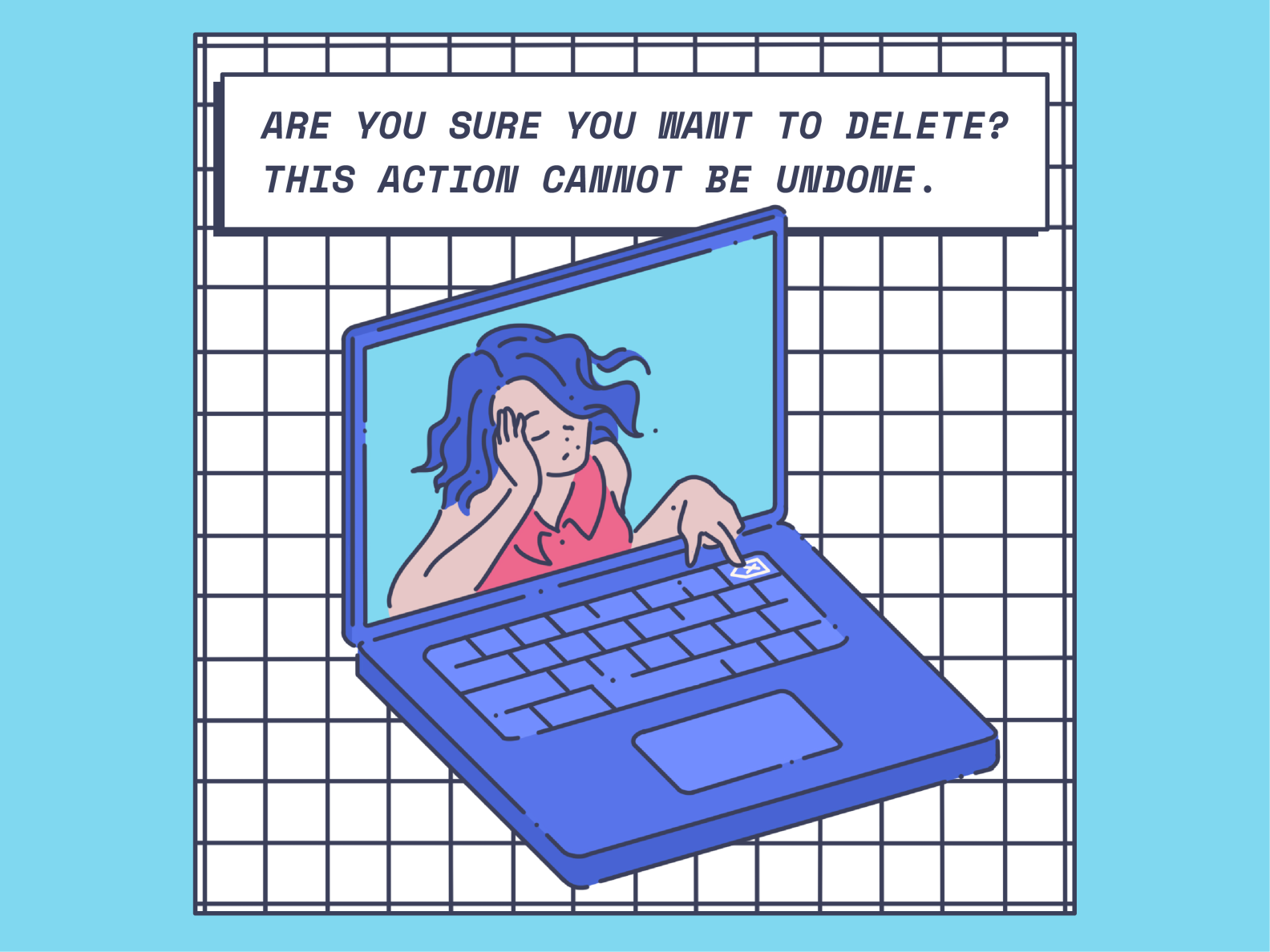
Um, but at that point I, that was what sparked it, I think, um, because at 17 years old, I lost my best friend since we were four years old to suicide. Wow. And I had always said that would never be me. That'll never be me. I don't understand it. I, I, you know, I don't blame her. I don't, you know, hold any resentment, but, um, and then I found myself right there.
Yeah. In that same position. And I. Gotta do something. And luckily at that time I met my now husband and he was like, you don't wanna have to live like this. And I was like, really . And so, and it, I think sometimes, you know, that's, all it takes is just a little bit of somebody to say this you're not, you're not stuck.
Like you have the ability to change your life. So, um, Yeah. So when he said that to you, like how long did it take you to kind of like process that, that you weren't like stuck where you're at and have to be the person you currently are being at least a couple months? Yeah. Uh, yeah, it was a little while.
And then I, I really started ruminating on it and thinking, and I'm like, you know, maybe there are some other options. And so, um, I put in my two weeks without a plan. Um, and I took about a month off. And during that time is when I really got validation that I made the right decision because I slept for about 18 hours a day for a month straight.
Yeah, because my adrenal fatigue was just off the charts. Right. Those are some super long shifts, even though you're enjoying it, like, well, enjoying it. Right. You were enjoying it at one point and then the, the joys just fades away and is gone. Yeah. And it was, it was very hard, um, because. You know, when you, the essence of trauma is losing your identity.
Right. And so what many of us do is take on the identity of the uniform. Yeah. And so it was like all of a sudden, who am I? Right. And, and it's really scary to get to decide that because you're like, this is a whole big blank slate, and I have no idea who I am. Um, and so. Uh, really wild to kind of reinvent yourself.
yeah. Yeah. It, it definitely is because so many of us become, like you said, the uniform, that's our entire identity, both on the job and off the job. Like that's just who we are. And then we accept. Maybe the way we act or do things or as just being, oh, that's just, you know, part of having the badge that we're we're these type of people.
Mm-hmm yeah. So we have this, you know, this culture that's been built up over the last few decades and, um, you know, we've really created some stereotypes and a lot of us live up to 'em and, um, but what I'm. Really finding and kind of pushing is that we are the culture. So we get to create. The culture moving forward.
So yeah, we can, we can swing the pendulum, you know, it doesn't have to swing all the way, the other way, where we're only social workers, but we can swing it a little bit the other way and not be so afraid of our own thoughts and feelings. Yeah. Yeah. When you're working so many hours like that and just to constant over and over and over there really isn't a whole lot of time for self discovery.

Yep. And that's, that's what I hear a lot. Um, but it really doesn't take. Gosh, you don't have to, you know, go float down at the Amazon river or anything to, to find yourself. You know, what it takes is, uh, you know, a few quiet moments a day and maybe, you know, an hour or two a week to really just get really honest with yourself.
And it's not about getting, getting soft and. You know, singing kumbaya or anything. Cause, um, you know, in order to survive the job, you have to kind of get hard. Yeah. But it, but you don't have to be hard all the time. Um, so it's really just about being honest with yourself, which can be a lot harder than just putting on a front.
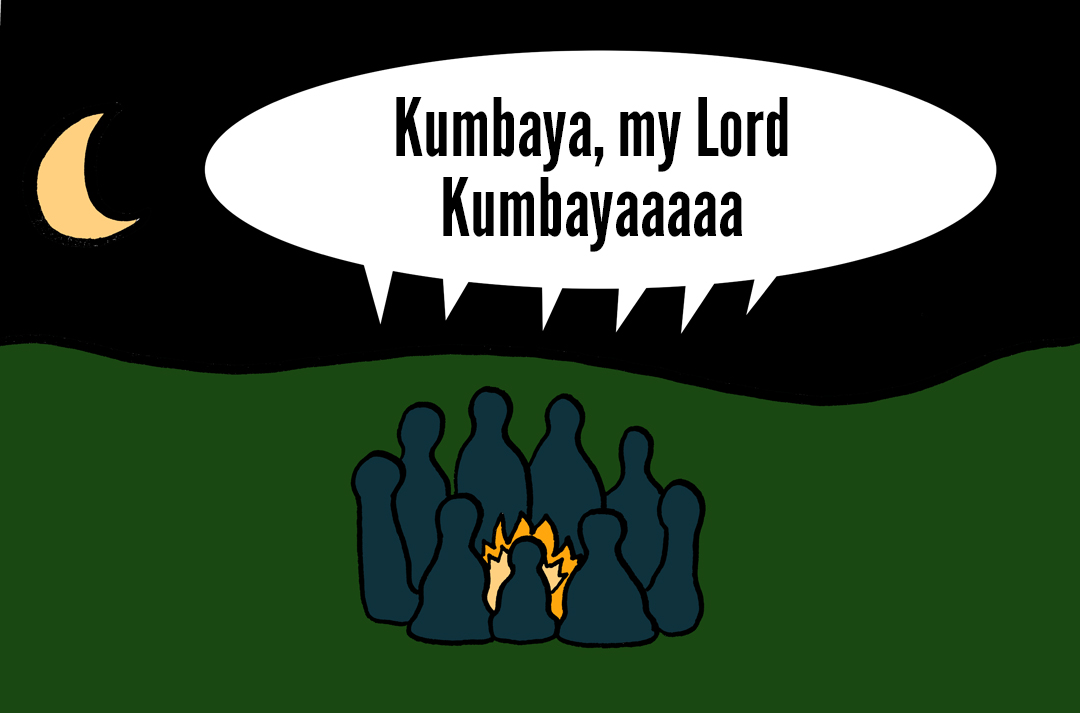
Right. Right. And do people, would you find people wanna do that work and be honest with themselves? Some people . Yeah. Um, it's, it's funny because I do, I have one on one clients that are like, let's do this. Some, you know, there are parts of my life that are not working. It help me, you know, and I just, you know, I can act as a mirror, you know, as their coach, but.
There are some people that they're like, I need to change. And I'm like, okay. And we start talking and they're like, I'm not ready for this. And I'm like, okay, I get that. Um, because it is, it's very hard to look at your own shadow and go, oh, I created that and I needed to take accountability for that. Um, and they realize that it's a lot harder than they think.
Yeah. And, and that's okay. You know, when they're ready, they'll come around. But. Um, I find that people are eager to dive into who they are as a person. Um, just not everybody's ready to do the work. Yeah. That's okay. Yeah. How fast do you re do you think it was be when you like, before you like lost yourself?
Cool. Um,
you know, it's interesting. I, I'm not sure. I ever have ever thought about that, but I think that because I was so young, um, going into it, you know, I was a year out of high school and I was, um, still in college and probably didn't even know who I was that I just kind of by default was. Here I am. I'm a cop.
This is my, this is who I am. And so I don't know that it even was a matter of time. I think I just immediately fell into it. Yeah. Yeah. I, I could see that being so young and having so feel like life experiences before diving fully into your career. Wow. And I had, I mean, I had had a lot of life experience for my short amount of time.
Um, but I think it was almost maybe like I was searching for something to latch onto and when I found it, it was like, okay, that's it? Yeah. Give me the uniform. yeah. Yeah. So, I mean, you, you had trauma before going into being a police officer. I know you lost your friend. Did you have other trauma as well? I did.
Yeah, there was about every year, every other year, there was something that, um, that occurred. And I didn't, I didn't really identify them as traumas until I was much older. And then I'm like, oh yeah, that's why I lost an entire. Summer of memory out of my life because that's called trauma yeah. Yeah. So dive, let's dive down a little bit into the trauma, cuz you're we talked about that in the beginning.
Like how does that look for people? You kind of briefly explained that, but how does that look? Mm-hmm well, it looks different for everybody. Um,
Really just about any reaction to trauma is a normal reaction because trauma is an abnormal situation. Um, and so you think about people that, you know, they get some terrible news and they collapse, or, um, you know, some people might get the same news and they might be, you know, losing their lunch in the corner.

Yeah. Um, our, our body. Uh, you know, chronic stress and trauma really lives in our body and our body reacts to it because trauma puts you into a survival mode. Um, you know, it puts you back into like a primitive, like my, your body needs to survive this moment. And so anything that is beyond just straight survival goes out the window.
Um, So it really looks different for everybody. And some people don't have a reaction and they think that, oh my God, what's wrong with me? I, I didn't like I'm, I'm fine. And everybody else around me is, is not fine. Well, maybe it just hasn't registered yet or maybe it's also okay to be okay. Um, I think that's something that like the pendulum has swung a little too far in a way where everybody's like, it's.
It's okay to not be okay. I agree with that, but it's also okay to be okay. You don't have to feel something right away. Um, but trauma can look different for everybody, whether it's a critical incident or just cumulative. Um, but where I really start to see the breakdown it with law enforcement and first responders is in between like seven and 12 years.
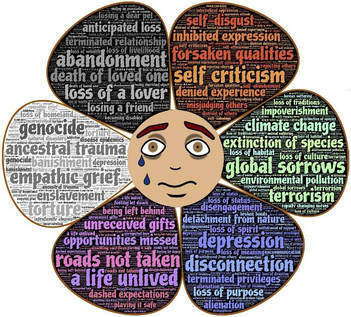
Um, It really starts to wear people down and it, where they don't even notice it they've become numb to a lot of the little T traumas that, you know, we wouldn't consider it a trauma anymore, but you know, the normal citizen would, um, and. All of that stuff, just accumulates and being in a trauma rich environment, um, it's just kind of omnipresent and that's where we get the galls humor and things like that because we have to learn how to cope.
Um, and so it really looks different for everybody, but just about every reaction is normal. Yeah. I, when you're saying between seven and 12 years, I'm thinking between seven and 12 years, There's a lot of promotions generally that take place during those seven and 12 years. Yeah. I didn't even think about that.
Yeah. And it's, you know, it's interesting because, um, and, and not a dis on military at all, because the things that they see over there, they're in such an acute situation. Um, and they might be over there for a few months or, or whatever the case is, but it looks a lot different. So. Um, are very quick to advocate for mental health for military, but then you've got officers that are doing this, maybe not to that scale.

Sure. Um, but doing it for 25, 30 years. Right. Right. And it's like, and then they leave, they retire. And then what, and so we really have to start advocating for, you know, the mental health of our first responders as well. Um, Because it's. And like I said, not to minimize anything that military goes through, but, um, it it's, it's different and it's, it's a long time to carry that stuff.
Yeah. So someone that does a career for 20 to 30 years or few that even do it even more like, and they retire and he said, then what? Like, yeah, really then, then what, then what do they. Right. Yeah. And I've had people, um, who either had, were forced to retire medically or just, you know, put in their time. Um, and it's interesting because I think we kind of forget about these guys or like, Hey, you, you made it, you survived, they your whole career, but then, you know, they're sitting at home and I go, all of a sudden, I'm not in the loop.
Yeah. I'm not getting phone calls. I feel like I'm melting into the walls because. I don't have a purpose anymore. And that's why I think it's really important to find the iden your identity as a human,
you know, outside of the uniform, because when it all goes away and, and let's be real, it could go away at any minute. You could sure. You know, get in the fight of your life and, you know, break your sh you know, bust your shoulder up, and then you're done. Sure. Um, you h
ave to know who you are. Outside of the uniform and that can be a challenge, but it's really important.
Yeah. Yeah. It's extremely important. And I think you're like you, do you lose yourself in the job and that you look back at their, in, towards your, into your career or, you know, looking to retire and you. Yeah. Who am I? What am I gonna be? Where am I gonna go? What am I gonna do? And I could see, yeah, those, like you said, just melting into the wall and being I'm I'm not important anymore.
Yeah. Yeah. And that's something that, you know, being in uniform really, um, I, I talk about this a lot with my clients, because a lot of people get into these kinds of jobs, um, either because they're used to their nervous system being dysregulated because of any kind, you know, trauma or chronic stress. Um, but sometimes it's because as a kid they didn't feel seen and heard, and these are things that we don't like to talk about.
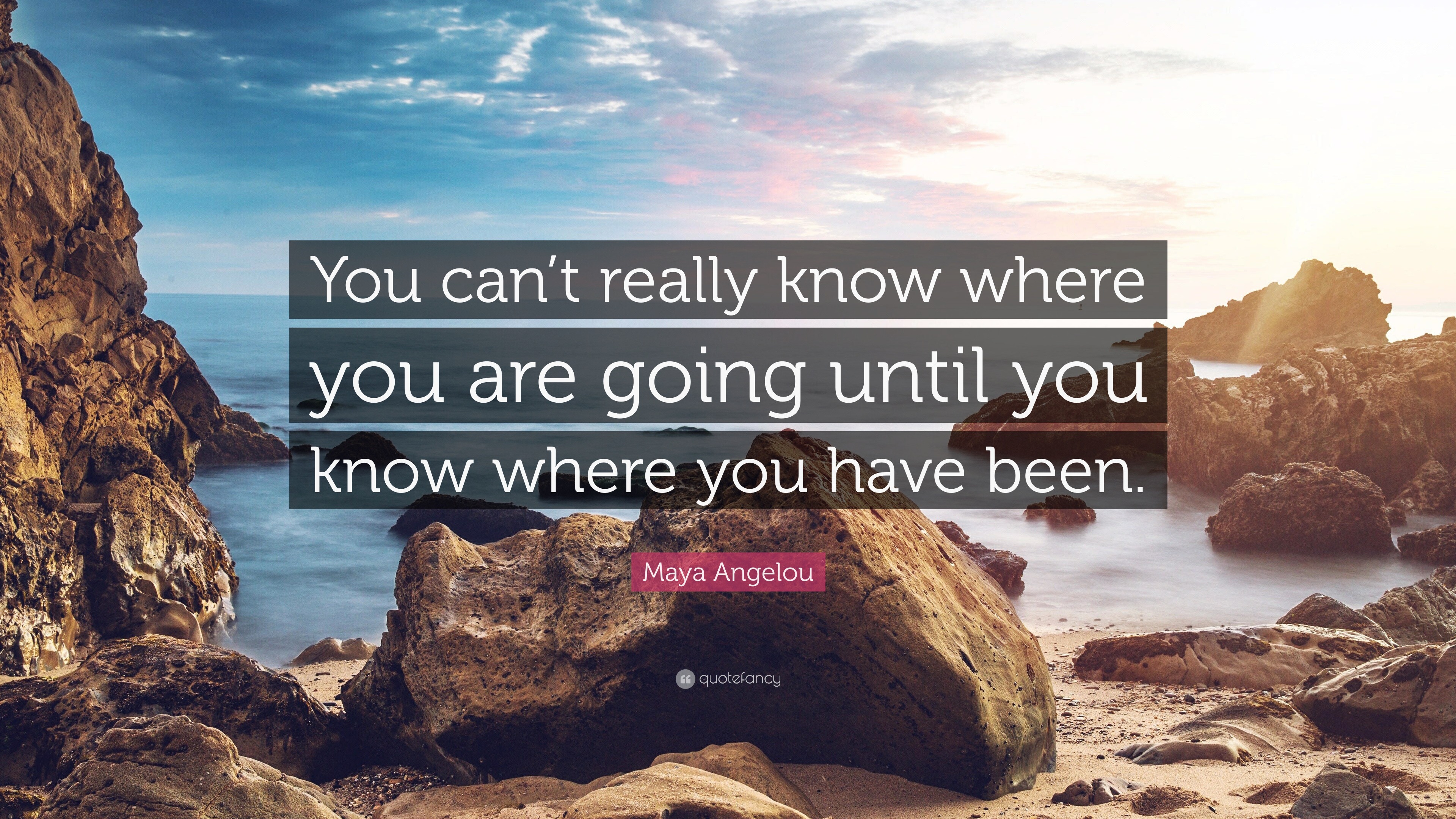
Right? Yeah. Like that just sounds very soft and gushy, but, um, but truly. You get into these jobs and all of a sudden you are being seen and you are being heard. And then if you're not in the job anymore, wow. That validation goes out the window. And that's really tough because we're human and that's a natural thing to want to be.
Validated and seen and heard. And, um, yeah, so I wish we had more, um, four retirees and, and people who are former law enforcement, um, just to kind of reacclimate, um, into normal normalness yeah. Yeah. But, um, I think that that's coming. I think that that's probably the next thing that, and, and things for, uh, spouses too.
/GettyImages-1296548018-e2ff9c5515d5461cb179deef15445fb0.jpg)
So, yeah, cuz they play a role in all of this as well. And your family play a role in all of this and especially, you know, those offices that are working all these. You know, long shifts and late shifts that don't really get to interact with their family normally, right? Like as a normal person person would.
So I think they not only do you lose yourself, but you're losing that connection with your family. Yeah. And, and it's really important that you have a support system, um, that understands things. Um, you know, there really is no substitute for, for living it, but if they can get pretty close to understanding, you know, what that person's brain is going through, what they, what their needs are, um, knowing that any reaction.
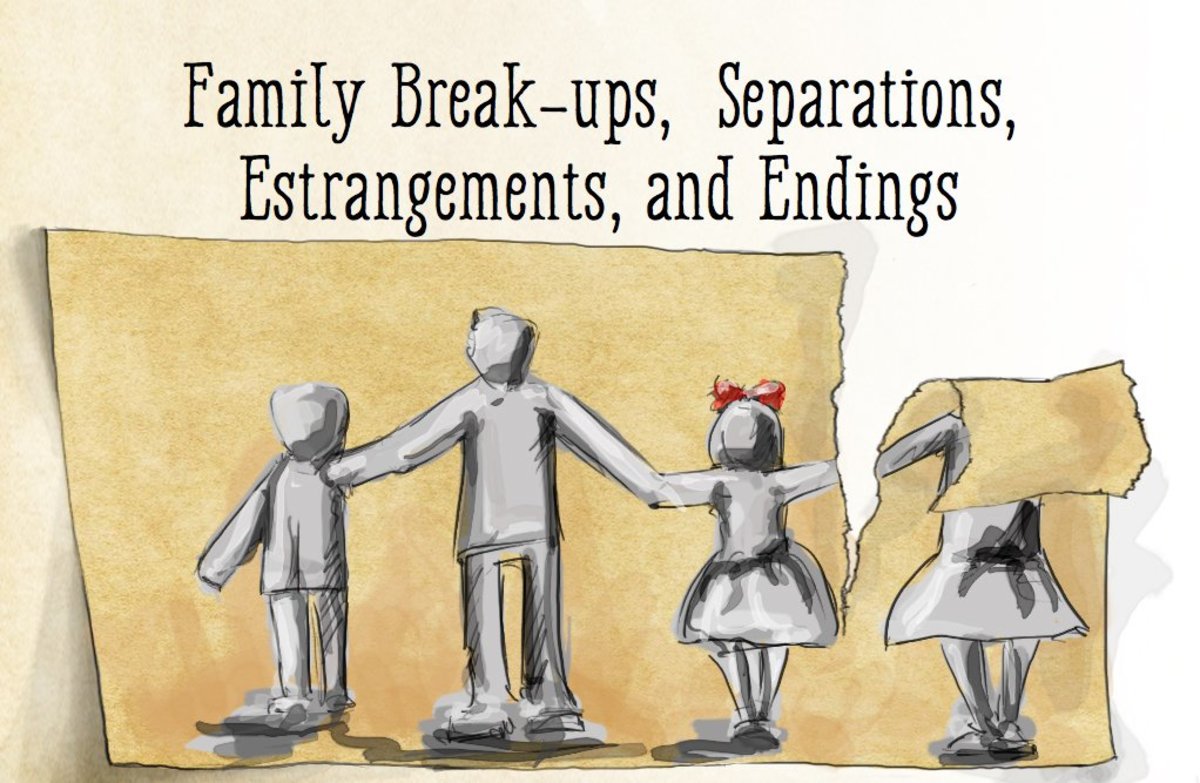
To a shift is a normal reaction and, you know, giving them the, the space and the freedom to, um, do what they need to do, um, is really, really important because we tend to isolate and think that, you know, I don't wanna be a burden talk about my problems because I signed up for this. Right. And, uh, but human connection's very, very important.
Yeah. What are some things that a spouse could do or significant other could do to help keep that. Critical bond together. Um, definitely create some kind of sustainable system. Um, that is just understood. So, you know, if it's a matter of, you know, the Ellio walks in the door and says green light. Had a good day.
Yeah. Um, and then, so that, then the spouse knows, okay, we can, we can talk or I'll give 'em five minutes and then, you know, whatever. And or they say like red light, not, not a good day. I can't even form words because a lot of times, if you've been in a traumatic situation or chronic stress, words are hard.

like, yeah, it literally like your brain has to switch into a D. Part of activation to form words and sentences. So, um, you know, then they, then it's a matter of, okay, I'll give them half an hour, 45 minutes. I'll check on. 'em see how they're doing. Um, just having some kind of a system, you know, after shift and then making sure that they feel safe and comfortable enough to open up, um, not, not trying to fix everything.
um, I think in a partnership, we, we hear venting and we wanna fix it. Yeah. And a lot of the things that an Elio would be venting about aren't fixable. Um, so just letting it vent, um, without trying to. Arm chair, quarterback and say, well, maybe if you next time do this, or what if you did this, it just, that's not even helpful.
Yeah. They just need to get it off their chest. So yeah, just time and space and, and some kind of a system that's kind of unspoken, um, can really be helpful. Yeah. Without setting up the system and having that time and space. I I'm just thinking in my mind that that could. The amount of time and space could take longer and longer before someone comes down out of that heightened level.
Mm-hmm , especially if you walk in the door and this is generally, my wife knows this is never, she can just look by at my face, see if I had any sleep or, you know, how the shift was. And then she's learned to be like, okay, this is not time to really discuss everything. And.
Could be going wild and everything. And I'm just like, I need some time. I need some time to decom decompress and, and have that moment to myself, to mm-hmm decompress and sleep or whatever, cuz it's such a hard thing. Hard transition, like you're saying to come home. Um oh yeah. To what can be, feel or feel chaotic to you.
Mm-hmm well, yeah. And so, you know, you, depending on where you work, you, your job could almost be like being out on the battlefield and you're having to transition from home to work multiple times a week. And it's like, how do you, how do you regulate yourself through that? That's a lot of what I teach is how to find that balance.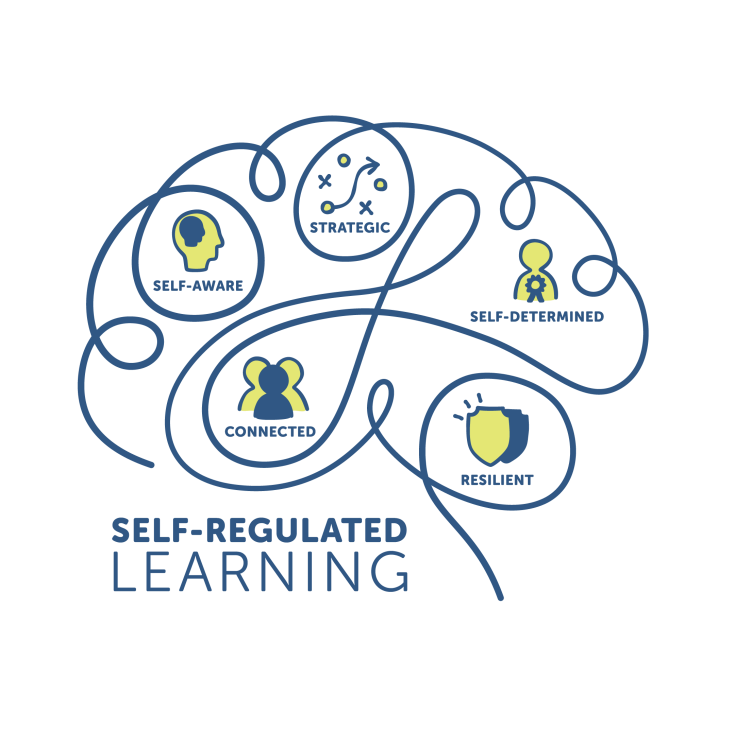
Um, it is hard if you're, you know, on a call half an hour towards the end of your shift and you get this massive adrenaline dump. Well, by the time you get home, that cortisol is still pumping through your body and you're gonna have to bring yourself down. Or, you know, if a kid, when your kids throws a ball and it hits in the side of the head, you might freak out.
Right. So yeah. It's like you, you really have to find that, um, Find that balance and make sure that the spouse is on the same page. And maybe even it's a, it might even be a matter of like considering you on shift until after you shower and come outta the bedroom. Yeah. Or whatever the case is, you know? Um, but it it's really about giving the El some grace, but that goes both ways too, because you know, when you're at work, The, the spouses at home holding down the floor.
And so it's like, you know, they, they might need to vent too. Um, and it might seem insignificant to Theo, like really, you just had to change some diapers and do some dishes today. Yeah. Okay. But that can be very SP as a mom. that can also be very stressful too. So it's, it's really just having a mutual understanding.
Yeah. You could totally, in these careers, you can be, feel like a single parent. Nice. Yeah. And, and not have not have that help. And I, I will always say it like the stay home mom or the mom that's holding down the Fort working or whatever that job is extremely tough. Mm-hmm . And I think that's, I mean, I I've had tougher jobs, but , but, but when you're, when you're in it, it seems very, very stressful.
Yeah. And so you do need a break because, you know, you can only listen to so much Coco melon a day, so yeah. Yeah. how are some ways to come home and kind of get out of that heightened state? So a lot of what I talk about is, um, adrenaline regulation. And, um, most of that is really just connecting with your breath and learning how to properly breathe.
Take a really deep breath, because what that will do, um, when you've had an adrenaline dump, your sympathetic nervous system is activated, right. And adrenaline will. Hundred percent save your life. It puts you into survival mode, gives you all the spy senses that you needed when you were a caveman and gives you really heightened awareness and all those things that you need.
To save your life. But like I said, you know, that cortisol will pump through your body for at least two hours. And so to bring yourself down off that you have to activate your parasympathetic nervous system. And one easy way of doing that is to activate your vagus nerve. So it's your 10th cranial nerve goes throughout your entire body connects to all your major organs.
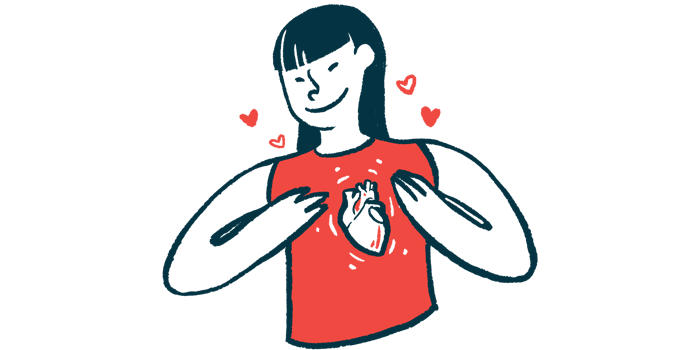
And if you can take really solid, good deep belly breaths, you push on your diaphragm. And it activates that vagus nerve and releases serotonin, serotonin, endorphins, dopamine into your brain, into your body. And it starts to calm everything down. That is the quickest way of doing it. Um, you can, you know, take a few minutes and, and kind of meditate or sit quietly.
Um, but. Always start with the breath because meditation is a lot about breathing too. So really just focusing on what your body's feeling, you know, trying to sit, still, get grounded, let your body feel a little bit heavy. So you're not, you know, up here in your head and, um, take some deep breaths. Maybe listen to some, like.
Not head banging music. Um, right. So music that might just relax you because yeah. That will affect your brainwaves and, and kind of chill you out a little bit. So most of the time, um, breath work and, um, you know, making sure, obviously that you don't have your vest on. While you're trying to do the breath work.
Now, if you need to do it in the middle of a shift and you're on you have your vest on, that's fine. But what I've realized is we, the vest, the uniform constricts, our lungs. And so we're not getting, we're not able to get those full deep breaths that we need to calm ourselves down. Um, and then, um, just moving your body a little.
Just some good, solid stretching, like, you know, cleaning out the cobwebs and, um, that can really affect your mental state as well. So breathing and stretch. And this is where yoga comes in. Yes, this is why it widely, widely popular now. Yeah. And, um, you know, I like to call it mobility, so it doesn't scare anybody off.
Yeah. But yes. Um, because all of that stuff lives in our body. We hold a lot attention in our shoulders and our neck and our hips. And if we can, you know, start to really. Like I said clear out those cobwebs loosen up that tension. It loosens up the mental tension as well. Yeah. Yeah. That, well, and on top of right you're if you're a law enforcement officer and sitting in a car, like it is not easy on your body.
And you've got, you know, 20, some pounds of gear around your waist or hanging on your shoulders and you have these same repetitive movements every single day. Right. So if you have an MDT, you're always your, your head is always turned to the right. Yeah. Your body's always shifted a certain way. You're always stepping out of the car the same way.
And if you have high boots on. Your ankle is restricted. So you're cranking on your knee to step out of the car. Um, it, it is the same things every day, but they're not balanced. And so if you practice yoga on a regular basis, um, it can really help your body to balance everything out, um, giving you that mobility will help prevent injury as well.
Right. Um, and it. It's just a really good for your overall health. It boosts your immune system. Um, it helps your, your circulation, your cardiovascular health, which is huge because we are at so much higher risk for cardiovascular issues. Yeah. Um, and you know, people are like, well, yeah, duh, cuz of the stress I'm like, yeah, duh, you can do something about it.
it. It's not something that you just have to be. It's part of the job, something you signed up for and that's just the way it is. Well, and it's so interesting to me, you know, we, there are other jobs where, you know, you train for the job and you train for the byproducts of the job, right? Like a professional athlete.
They, they train for the byproducts. You know, they train for getting smashed, you know, helmets to helmet and things like that. Um, we don't train for, for the byproducts of the job, the stress and the trauma. And. We really need to be doing that. And a lot of that is through our body, which relieves a lot of people, cuz they're like, wait, you mean, I don't have to really talk about everything no, you don't, you know, if, if you want to and it, if that is helpful to you.
Absolutely. Um, and I do believe that trauma needs a witness to heal, but it also starts with the body. And so releasing it out of your body, even if it's just like going for a. But then having a good stretch afterwards because a rigid body equals a rigid mind. Yeah. So being able to, you know, clear everything out is, is very beneficial.

I think something, excuse me, new to people. Um, I think, or learning that trauma does stay in our body and it's held somewhere in our body. I think that kind of blows people's mind a little bit. Can you talk a little bit about that kind of how that, yeah. How that looks. Yeah. Well, you know, when you go through something traumatic, um, every single sense, your, your eyesight, your smell, your taste, everything can, all your senses can be traumatized.
So when we're taking in information, we're not just seeing and listen. It's every cell of your body that's taking in that information, right? It's our skin is our biggest organ, so our touch and all of those things. So if you, you know, if you get in a really wild fight and you're on the ground and you're fighting for your life, that's gonna stick with you.
That's gonna be like emotional. Residue that sticks with you. Um, and people don't think that because you think, wow, I survived that and now we move on. Yeah. Um, but sometimes you need to go over it or, you know, let it out. But, um, truly our, our bodies absorb everything and it, it stays with you until you can clear it out.

Um, That's why our, you know, as ELs our life expectancy after retirement is an average of five years. And that's very scary because yeah, people dedicate their lives to this career and they spend 25 years in it. And then they get like five years of enjoyment out of it on average, you know, that's not okay.
So we, we wanna try to mitigate that and. Let people or help people to realize that they have to. Fuel their vessel. , you know, think about your body as a cruiser. Like you wouldn't jump in a cruiser that doesn't have working lights and sirens. It's not gonna serve anybody. You know, you're not gonna get where you need to be.
And, and so you really have to kind of give yourself a really, um, honest audit of, of your body and your mind, and just, you know, get really real with yourself of what you need to do to. You know, take care of yourself, whether it's drinking more water, eating, you know, less McDonald's, um, drinking, less booze, smoking less cigarettes.
Yeah. Whatever it is, you know, and, and we fall into those things because the, they make us feel good. Um, and we're really searching for that. But, you know, is it a sustainable system in the long run? Probably not. Right. It's a short term feel good kind of thing. It's not it's I guess that instance gratification, but it's not one that last, it sets the trajectory downward.
Um, and you have to really be able to see beyond the next week. Um, and I think that's something that we. Don't do right. We need to live in a moment because we may not have next week, but you know, if you really wanna set yourself up for success, you have to look at things that are going to serve you a year from now and continue on that path.
Do you find first responders? Not really looking to the future, so to speak a little bit. Yeah. Um, you know, it's not something that I. Not a topic that I've, you know, dove into extensively. But I do find that to be a little bit of an undercurrent that it's like, you know, well, we live for today cuz we might not have tomorrow and I get that.
But if you live like that for 20 years, And then you look back and you're like, wow. Hmm. I could have set myself up a little bit better. Like your future self will. Thank you. Right. So you wanna, you know, try to live a life that you look forward to looking back at. Yeah. You still have to have hopes and dreams.
Yep. Yes, absolutely. I, I, I think that gets lost right? When you lose your. Those hopes and dreams are just kind of just fade away. Yeah. And, or they're tied up in the job. Yeah. So then when you retire, it's like, well, guess I'll go fishing for the fifth time this week. nothing wrong with that. But yeah. You know, you've gotta have something and, and you have to take care of yourself because you know, your loved ones want you around for as long as possible.
And. You know, I'm sure that when you retire, they look forward to seeing more of you that have the last 25 years. So yeah. Yeah, for sure. And you work on people with me doing meditations as well. Yep. So, um, A lot of times I will do guided meditations. So, um, I actually have for my clients, I have an app that has a bunch of meditations and breathing exercises and stuff loaded on it.
And some mobility, um, where they can just, you know, at any time that they need it, you know, go in there and hit a button and they're in the middle of a breathing exercise or, um, you know, if they have to. Go home after a long shift and grab 10 minutes and sit down and meditate. Um, but it it's really interesting the science behind meditation.
Uh, so there have been a couple of different studies done that showed MRIs before and after eight weeks of consistent meditation. And. In those eight weeks, what they found was that the amygdala, which is that fight or flight center, um, it actually shrunk. and the gray matter in the prefrontal cortex, you know, where you make all of your critical decisions and, um, critical learning and all of those things was actually thicker.
Um, and then it also showed that the connections between that fight fight or flight center and the rest of the brain were diminished and the connections between the prefrontal lobe and the rest of the brain were bolster. So it really literally rewires your brain. Um, and a lot of what you see with people who have PTSD, their brain scans look the opposite of what somebody who has been practicing meditation looks like their amygdalas, bigger.
Their prefrontal lobe is, uh, you know, not as thick and meditation can almost literally reverse. Yeah. And rewiring your brain is brain science is like, I think just taking constant leaps and bounds and trying to understand the brain is super cool. And the more you understand it, you're like, okay, this is kind of what, why I'm getting the results I'm getting, because I have re I have wired my brain so well, maybe for the job, but I have not.
Wide my brain for not being at work. Mm-hmm . Yeah. And, and that's just it too. Um, we, we don't realize that we're doing it, but once we have the awareness that, okay, so this is how my brain works. So if I want this, if I want X, Y, and Z, then I need to do a, B and C and then what it does, I think, because we're most cops are intelligent individuals.
And so. um, once they have that awareness, it gives them their power back and then they can see like, okay, I'm not losing my mind. I've wired myself this way. I've primed and conditioned myself this way. I can prime and conditioned myself this way too. Yeah. And, um, it really gives them their power back. So a lot of what I do with my coaching and then my agency trainings is just education.
It's just like, Hey, this. What we've done, and this is what the training did to save your life, but you also have the ability to be happy. Yeah. Yeah. Which is just something I think we forget right. Definitely is something that we forget. Um, I tend to look at a lot of first responders and see that they're not as happy as, as they could be.
Mm-hmm and I think kind of what you're talking about is. To, to rewire your brain. You have to take that time to get some self-awareness. And if you never take the time, you're never gonna get that self-awareness that you really need to get mm-hmm so, yeah, and it, it needs to be a consistent thing too, you know?
Um, our brains operate off of confirmation bias. , which just means, you know, like if you've ever gotten a new car and all of a sudden you see the same car everywhere and you're like, dang it. I thought it was the only one. Right. um, but it's because you know, your brain has all of a sudden take that, taken that from your subconscious and put it into your conscious and said, okay, this is important, right?
This is, this thing is important. So that's what your brain chooses to filter in. And the same thing happens when we're on the job. We are constantly seeing death and destruction and just the lack of humanity. And so that's what our brain is going. Okay. This isn't, if I'm repetitively seeing this, this must be important.
And so that's what our brain will filter in elsewhere too. And so we get very, very cynical because our brain says. All right. Even in my personal life, I'm gonna see the lack of humanity in this person, even though that's my uncle or whoever, you know? Yeah. Yeah. And it, it just can't switch on and off. So we have to be able to really, um, give ourselves permission to change perspectives.
Yeah. And that perspective is like everything I feel it is so, so important. And it's. So easy, not like you're saying to not see a different perspective. When you have wired your brain down, these super highs, your brain wants to do everything. Like you said, to protect you and your brain wants everything to be easy and, and just live in that kind of state, but get taking that time to meditate or stretch or work out or do these other things.
Kind of UN unwire, those super highways of rigidness, maybe, you know, as a, as a first responder. and, you know, to work on that confirmation bias, cuz it's really just, you know, your brain filtering things in based on your preexisting beliefs. Um, that's where affirmations come in. And I have a bunch of affirmations on that app because, and it sounds so silly to think, you know, I'm gonna sit here and go, I am safe.
I am worthy. I am capable, you know, but truly. You, you know, if you want to rewire your brain and, and create those new neural pathways and see those things out of your life, that's how you do it, you know? Yeah. It's just the repetition because that's, you know, you're getting the repetition elsewhere. Why not take your power back and choose what you're gonna re repeat over and over and over again.
Right, right. Cuz you do have the power to do that and take these steps to. Better your life, better, your career, better, all the things around you and live after retirement. What are some other ways? Um, that first responders can like, let's say, improve their lives. Maybe we we've talked about some flexibility type stuff.
We've talked a little about Breathworks and mind stuff. Anything else that first responders could do to help themselves?
Giving themselves a little more grace. We hold ourselves to such a high standard that sometimes I think we Des we think that we don't deserve to be happy. Um, you know, I, while I put myself in this career and you know, it's given me all, nothing but crap back or whatever the case is, you know, we, we get it's, that's the cynical part.
Really allowing yourself to be human. We have this major campaign to humanize the badge and I love it, but I think we also need to not only start seeing each other as human and recognizing that, but seeing ourselves as human and realizing that, all right, we were created and wired with emotions. That's what separates, you know, um, Well, I guess that doesn't separate us from the animals, but other things, but yeah, but we were wired with emotions and there just evidence and data from the body, just indicators of what's going on with us.
And we really need to allow ourselves the permission to be human. Um, and if that means that you need to go home and write in a journal, Get it out. If that means that you need to go for a walk by yourself, if that means that you need to invite a dozen of your friends over and have a barbecue and a cold one, if that whatever that looks like don't shut out life.
Just because you don't feel like you deserve it. Yeah. Um, that, that seems to be the, the major undercurrent is that, you know, well, I just. I've lived this way for so long and I've isolated myself, so I don't even deserve to have whatever. And that's just not true. Yeah. Yeah. That's definitely a major undercurrent.
I think another one is that came to my mind while you were talking is, uh, you know, look seeing other people and maybe seeing yourself as we're not perfect. And, you know, you look at the cuz we talk about athletes and stuff like that. Look to them, to some of the, see some of the results they're getting and why they get them.
Like, you're amazing if you're like a baseball player and you hit, you'd be incredible, right. Four outta 10, 10 times. You're up, you hit four times and you're an all star, like, but on as a first responder, you. Look at yourself and look at other people and it has to be 10 outta 10 mm-hmm so there's no grace.
Well, yeah. And not only that, um, you know, we, I heard this from, I believe it was Kyle Callahan, uh, outta Louisiana and. You know, he talks about training, um, how athletes train for the big day, they train for the big game. And, but the thing is, is they know when that's coming, that's scheduled. Yeah. Yeah. We don't know when our big day day is coming.
We don't know when our, our big game is gonna be when we might have to have the fight of our life. And so we have to make sure that we're nurturing ourselves. Physically mentally, emotionally so that we can be ready for that big game whenever it comes. Right. And a lot of that comes sometimes with slowing down.
And I know that sounds like a, a, a, you know, contradictory or, or misnomer, but you have to really allow yourself to offload because you can't carry around all the stress and fight the fight of your life. Right. I mean, you can, you're probably gonna get. But being able to be ready for it and do the work outside of the job to be prepared is really important.
You know, a lot of people go do like CRAF Maah or, or, you know, sometimes CrossFits a dirty word to people and yeah. You know, they, they do whatever, you know, they go do jujitsu or whatever. Yeah. And they prepare for that. But you also have to prepare. To experience chronic stress and trauma, and that will serve you so much longer or so much better in the long run.
Um, but we don't really, we don't really talk about that. Yeah. And, and so I, my goal is to turn up the volume on these kinds of conversations, because that is just as important because we have way too many people, um, losing their lives at their own. Yeah. Yeah, definitely AK. Before I let you go, this has been a great conversation.
Uh, I personally, I love doing the podcast because I get to. Ask my own questions and stuff like that and relate it to, you know, probably how other people are feeling. I mean, too often, we feel like we talked about, like, you just feel like you're only the only person having these emotions and stuff. So the conversation's been great.
And I, I love it. I always learned some great nuggets for me too, with a, with a podcast, the AK, where can people find you and get in touch with. The easiest way. Um, my business is called lifesaver wellness, um, and lifesaver wellness.com is the easiest way to find me all of my social media, Facebook, Instagram, LinkedIn, all that stuff is linked on the website.
Um, and so that is probably the hub. That's probably just the easiest place to go. Awesome. Well, thank you so much for being on today and taking the time and sharing. Great, uh, what you've learned and perspective of the job. Thank you very much for having me on this has been fun. Yeah. Thank you. Thanks again for listening.
Don't forget to rate and review the show forever. You access your podcast. If you know someone that would be great on the show, please get a hold of our hosts. Jerry Dean L through the Instagram handles at Jerry fire and fuel. At enduring the badge podcast also by visiting the show's website, enduring the badge podcast.com for additional methods of contact and up to date information regarding the show.
Remember the views and opinions expressed during the show solely represent films of our host and the current episodes guests.

AK Dozanti
First Responder Wellness Specialist
AK Dozanti is a First Responder Wellness Coach & Specialist who actively works towards giving first responders a way to manage chronic stress and mitigate the effects of working in a trauma-rich environment. She is a former Deputy Sheriff as well as Criminal Court Victim Advocate who, after her own burnout became a yoga instructor and wellness coach. AK provides a unique perspective and skillset to address the many mental health issues plaguing first responders.









